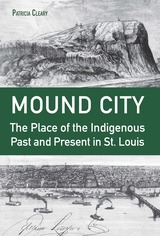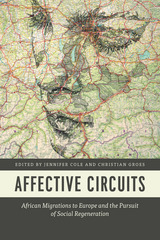
The contributors point to the intersecting streams of goods, people, ideas, and money as they circulate between African migrants and their kin who remain back home. They also show the complex ways that emotions become entangled in these exchanges. Examining how these circuits operate in domains of social life ranging from child fosterage to binational marriages, from coming-of-age to healing and religious rituals, the book also registers the tremendous impact of state officials, laws, and policies on migrant experience. Together these essays paint an especially vivid portrait of new forms of kinship at a time of both intense mobility and ever-tightening borders.

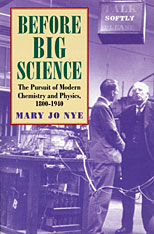
Today's vast multinational scientific monoliths bear little resemblance to the modest laboratories of the early nineteenth century. Yet early in the nineteenth century--when heat and electricity were still counted among the elements--changes were already under way that would revolutionize chemistry and physics into the "big science" of the late twentieth century, expanding tiny, makeshift laboratories into bustling research institutes and replacing the scientific amateurs and generalist savants of the early Victorian era with the professional specialists of contemporary physical science.
Mary Jo Nye traces the social and intellectual history of the physical sciences from the early 1800s to the beginning of the Second World War, examining the sweeping transformation of scientific institutions and professions during the period and the groundbreaking experiments that fueled that change, from the earliest investigations of molecular chemistry and field dynamics to the revolutionary breakthroughs of quantum mechanics, relativity theory, and nuclear science.

Download open access ebook.
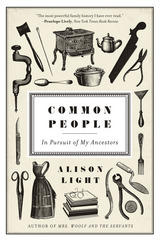
Most of us, however, give up a few generations back. We run into a gap, get embarrassed by a ne’er-do-well, or simply find our ancestors are less glamorous than we’d hoped. That didn’t stop Alison Light: in the last weeks of her father’s life, she embarked on an attempt to trace the history of her family as far back as she could reasonably go. The result is a clear-eyed, fascinating, frequently moving account of the lives of everyday people, of the tough decisions and hard work, the good luck and bad breaks, that chart the course of a life. Light’s forebears—servants, sailors, farm workers—were among the poorest, traveling the country looking for work; they left few lasting marks on the world. But through her painstaking work in archives, and her ability to make the people and struggles of the past come alive, Light reminds us that “every life, even glimpsed through the chinks of the census, has its surprises and secrets.”
What she did for the servants of Bloomsbury in her celebrated Mrs. Woolf and the Servants Light does here for her own ancestors, and, by extension, everyone’s: draws their experiences from the shadows of the past and helps us understand their lives, estranged from us by time yet inextricably interwoven with our own. Family history, in her hands, becomes a new kind of public history.

Consider this paradox: Ecologists estimate that it would take three planets Earth to provide an American standard of living to the entire world. Yet it is that standard of living to which the whole world aspires.
In Consuming Desires, award-winning writer and social commentator Roger Rosenblatt brings together a brilliant collection of thinkers and writers to shed light on the triumphs and tragedies of that disturbing paradox. The book represents a captivating salon, offering a rich and varied dialogue on the underlying roots of consumer culture and its pervasive impact on ourselves and the world around us. Each author offers a unique perspective, their layers of thoughts and insights building together to create a striking, multifaceted picture of our society and culture.
Jane Smiley probes the roots of consumerism in the emancipation of women from household drudgery afforded by labor-saving devices and technological innovation; Alex Kotlowitz describes the mutual reinforcement of fashion trends as poor inner-city kids and rich suburban kids strive to imitate each other; Bill McKibben discusses the significance, and the irony, of defining yourself not by what you buy, but by what you don't buy.
The essays range widely, but two ideas are central to nearly all of them: that consumption is driven by yearning and desire -- often unspoken, seemingly insatiable -- and that what prevents us from keeping our consumptive impulse in check is the western concept of self, the solitary and restless self, entitled to all it can pay for.
As Rosenblatt explains in his insightful introduction: "Individualism and desire are what makes us great and what makes us small. Freedom is our dream and our enemy. The essays touch on these paradoxes, and while all are too nuanced and graceful to preach easy reform, they give an idea of what reform means, where it is possible, and, in some cases, where it may not be as desirable as it appears."

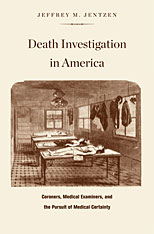
A death occurs at home, in a hospital, on a street: why? As Jeffrey Jentzen reveals, we often never know. Why is the American system of death investigation so inconsistent and inadequate? What can the events of the assassination of President Kennedy, killing of Bobby Kennedy, and Chappaquiddick reveal about the state of death investigation?
If communities in early America had a coroner at all, he was politically appointed and poorly trained. As medicine became more sophisticated and the medical profession more confident, physicians struggled to establish a professionalized, physician-led system of death investigation. The conflict between them and the coroners, as well as politicians and law enforcement agencies, led to the patchwork of local laws and practices that persist to this day.
In this unique political and cultural history, Jentzen draws on archives, interviews, and his own career as a medical examiner to look at the way that a long-standing professional and political rivalry controls public medical knowledge and public health.
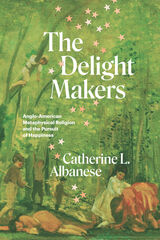
The pursuit of happiness weaves disparate strands of Anglo-American religious history together. In The Delight Makers, Catherine L. Albanese unravels a theology of desire tying Jonathan Edwards to Ralph Waldo Emerson to the religiously unaffiliated today. As others emphasize redemptive suffering, this tradition stresses the “metaphysical” connection between natural beauty and spiritual fulfillment. In the earth’s abundance, these thinkers see an expansive God intent on fulfilling human desire through prosperity, health, and sexual freedom. Through careful readings of Cotton Mather, Andrew Jackson Davis, William James, Esther Hicks, and more, Albanese reveals how a theology of delight evolved alongside political overtures to natural law and individual liberty in the United States.


In 1832, Ralph Waldo Emerson had come to a critical pass. He had lost his wife and was on the brink of leaving his career as a minister. In this reduced state he traveled to New Hampshire, where he made his famous decision to pursue wholeness--in his life and in his writing. This book reveals how Emerson went about achieving this purpose--and how he conceived a uniquely American literary practice.
Central to this project were the aims and methods of natural science, which Emerson discovered in spectacular form at the Museum of Natural History (Jardin des Plantes) in Paris exactly a year after his momentous decision. Lee Rust Brown describes Emerson's use of these scientific techniques to integrate a disparate, constantly enlarging field of subject matter--ultimately, to reconceive himself as an institution of private research and public presentation not unlike the museum itself, methodically gathering specimens from the exotic frontiers of experience and setting them out, in their manifold affinities, on common ground.
The Emerson Museum shows how this undertaking transformed the legacy of European romanticism into a writing project answerable to American urgencies. The natural science of the time was itself informed by romantic demands for wholeness of prospect, and its methods offered Emerson a way to confront an American reality in which any manifestation of unity--literary, political, philosophical, psychological--had to embrace an expanding and fragmenting field of objective elements. In the experimental format of Emerson's essays, Brown identifies the evolution of this new approach and the emergence of wholeness as a national literary project.
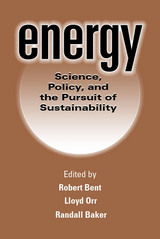
In the early 2000s, energy prices have fluctuated wildly, from historic highs in the winter and spring of 2001 to the lowest wholesale prices in decades a few short months later. As the largest user of fossil-fuel energy, the United States is the key player in the world's energy markets, and our nation's energy policy (or lack thereof) has become a subject of increasing concern.
Energy: Science, Policy, and the Pursuit of Sustainability is an essential primer on energy, society, and the environment. It offers an accessible introduction to the "energy problem" -- its definition, analysis, and policy implications. Current patterns of energy use are without question unsustainable over the long term, and our dependence on fossil fuels raises crucial questions of security and self-sufficiency. This volume addresses those questions by examining the three broad dimensions of the issue: physical, human, and political-economic. Chapters consider:
- the laws of nature and the impacts of energy use on our physical and ecological life-support systems
- the psychological, social, and cultural factors that determine how we use energy
- the role of government actions in adjusting costs, influencing resource consumption, and protecting the environment
- how markets work, and the reasons and cures for market failures in responding to long-term environmental and energy problems
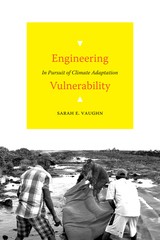
Duke University Press Scholars of Color First Book Award recipient
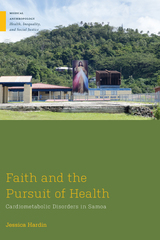

Winner of the Margaret W. Rossiter History of Women in Science Prize
A new history uncovers the crucial role women played in the great transformations of medical science and health care that accompanied the Italian Renaissance.
In Renaissance Italy women played a more central role in providing health care than historians have thus far acknowledged. Women from all walks of life—from household caregivers and nurses to nuns working as apothecaries—drove the Italian medical economy. In convent pharmacies, pox hospitals, girls’ shelters, and homes, women were practitioners and purveyors of knowledge about health and healing, making significant contributions to early modern medicine.
Sharon Strocchia offers a wealth of new evidence about how illness was diagnosed and treated, whether by noblewomen living at court or poor nurses living in hospitals. She finds that women expanded on their roles as health care providers by participating in empirical work and the development of scientific knowledge. Nuns, in particular, were among the most prominent manufacturers and vendors of pharmaceutical products. Their experiments with materials and techniques added greatly to the era’s understanding of medical care. Thanks to their excellence in medicine urban Italian women had greater access to commerce than perhaps any other women in Europe.
Forgotten Healers provides a more accurate picture of the pursuit of health in Renaissance Italy. More broadly, by emphasizing that the frontlines of medical care are often found in the household and other spaces thought of as female, Strocchia encourages us to rethink the history of medicine.

“Insightful tour de force… Farrell’s writing is as informative as it is intoxicating” -- Publishers Weekly
Shanna Farrell loves a good drink. As a bartender, she not only poured spirits, but learned their stories—who made them and how. Living in San Francisco, surrounded by farm-to-table restaurants and high-end bars, she wondered why the eco-consciousness devoted to food didn’t extend to drinks.
The short answer is that we don’t think of spirits as food. But whether it's rum, brandy, whiskey, or tequila, drinks are distilled from the same crops that end up on our tables. Most are grown with chemicals that cause pesticide resistance and pollute waterways, and distilling itself requires huge volumes of water. Even bars are notorious for generating mountains of trash. The good news is that while the good drink movement is far behind the good food movement, it is emerging.
In A Good Drink, Farrell goes in search of the bars, distillers, and farmers who are driving a transformation to sustainable spirits. She meets mezcaleros in Guadalajara who are working to preserve traditional ways of producing mezcal, for the health of the local land, the wallets of the local farmers, and the culture of the community. She visits distillers in South Carolina who are bringing a rare variety of corn back from near extinction to make one of the most sought-after bourbons in the world. She meets a London bar owner who has eliminated individual bottles and ice, acculturating drinkers to a new definition of luxury.
These individuals are part of a growing trend to recognize spirits for what they are—part of our food system. For readers who have ever wondered who grew the pears that went into their brandy or why their cocktail is an unnatural shade of red, A Good Drink will be an eye-opening tour of the spirits industry. For anyone who cares about the future of the planet, it offers a hopeful vision of change, one pour at a time.
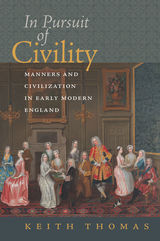

The collective memories of Nazism that developed in postwar Germany have helped define a new paradigm of memory politics. From Europe to South Africa and from Latin America to Iraq, scholars have studied the German case to learn how to overcome internal division and regain international recognition.
In Pursuit of German Memory: History, Television, and Politics after Auschwitz examines three arenas of German memory politics—professional historiography, national politics, and national public television—that have played key roles in the reinvention of the Nazi past in the last sixty years. Wulf Kansteiner shows that the interpretations of the past proposed by historians, politicians, and television producers reflect political and generational divisions and an extraordinary concern for Germany's image abroad. At the same time, each of these theaters of memory has developed its own dynamics and formats of historical reflection.
Kansteiner’s analysis of the German scene reveals a complex social geography of collective memory. In Pursuit of German Memory underscores the fact that German memories of Nazism, like many other collective memories, combine two seemingly contradictory qualities: They are highly mediated and part of a global exchange of images and story fragments but, at the same time, they can be reproduced only locally, in narrowly circumscribed networks of communication.
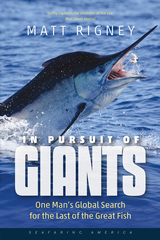
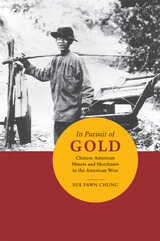
Both a history of an overlooked community and a well-rounded reassessment of prevailing assumptions about Chinese miners in the American West, In Pursuit of Gold brings to life in rich detail the world of turn-of-the-century mining towns in the Northwest. Sue Fawn Chung meticulously recreates the lives of Chinese immigrants, miners, merchants, and others who populated these towns and interacted amicably with their white and Native American neighbors, defying the common perception of nineteenth-century Chinese communities as insular enclaves subject to increasing prejudice and violence.
While most research has focused on Chinese miners in California, this book is the first extensive study of Chinese experiences in the towns of John Day in Oregon and Tuscarora, Island Mountain, and Gold Creek in Nevada. Chung illustrates the relationships between miners and merchants within the communities and in the larger context of immigration, arguing that the leaders of the Chinese and non-Chinese communities worked together to create economic interdependence and to short-circuit many of the hostilities and tensions that plagued other mining towns.
Peppered with fascinating details about these communities from the intricacies of Chinese gambling games to the techniques of hydraulic mining, In Pursuit of Gold draws on a wealth of historical materials, including immigration records, census manuscripts, legal documents, newspapers, memoirs, and manuscript collections. Chung supplements this historical research with invaluable first-hand observations of artifacts that she experienced in archaeological digs and restoration efforts at several of the sites of the former booming mining towns.
In clear, analytical prose, Chung expertly characterizes the movement of Chinese miners into Oregon and Nevada, the heyday of their mining efforts in the region, and the decline of the communities due to changes in the mining industry. Highlighting the positive experiences and friendships many of the immigrants had in these relatively isolated mining communities, In Pursuit of Gold also suggests comparisons with the Chinese diaspora in other locations such as British Columbia and South Africa.
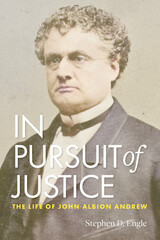
Widely known as the “poor man’s lawyer” in antebellum Boston, John Albion Andrew (1818–1867) was involved in nearly every cause and case that advanced social and racial justice in Boston in the years preceding the Civil War. Inspired by the legacies of John Quincy Adams and Ralph Waldo Emerson, and mentored by Charles Sumner, Andrew devoted himself to the battle for equality. By day, he fought to protect those condemned to the death penalty, women seeking divorce, and fugitives ensnared by the Fugitive Slave Law. By night, he coordinated logistics and funding for the Underground Railroad as it ferried enslaved African Americans northward.
In this revealing and accessible biography, Stephen D. Engle traces Andrew’s life and legacy, giving this important, but largely forgotten, figure his due. Rising to national prominence during the Civil War years as the governor of Massachusetts, Andrew raised the African American regiment known as the Glorious 54th and rallied thousands of soldiers to the Union cause. Upon his sudden death in 1867, a correspondent for Harper’s Weekly wrote, “Not since the news came of Abraham Lincoln’s death were so many hearts truly smitten.”
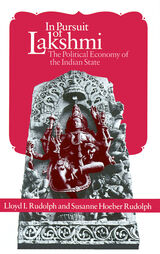
India occupies a paradoxical plane among nation states: it is both developed and underdeveloped, rich and poor, strong and weak. These contrasts locate India in the international order. The Rudolphs' theory of demand and command polities provides a general framework for explaining the special circumstances of the Indian experience.
Contrary to what one might expect in a country with great disparities of wealth, no national party, right or left, pursues the politics of class. Instead, the Rudolphs argue, private capital and organized labor in India face a "third actor"—the state. Because of the dominance of the state makes class politics marginal, the state is itself an element in the creation of the centrist-oriented social pluralism that has characterized Indian politics since independence.
In analyzing the relationship between India's politics and its economy, the Rudolphs maintain that India's economic performance has been only marginally affected by the type of regime in power—authoritarian or democratic. More important, they show that rising levels of social mobilization and personalistic rule have contributed to declining state capacity and autonomy. At the same time, social mobilization has led to a more equitable distribution of economic benefits and political power, which has enhanced the state's legitimacy among its citizens.
The scope and explanatory power of In Pursuit of Lakshmi will make it essential for all those interested in political economy, comparative politics, Asian studies and India.
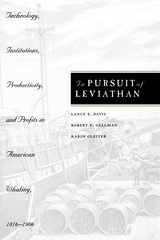
Providing a wealth of historical information, In Pursuit of Leviathan is a classic industry study that will provide intriguing reading for anyone interested in the history of whaling.

With a mixed-methods approach, Charles R. Hankla draws upon archival research and interviews from postwar France and post-independence India as well as quantitative models of the outcomes in sixteen countries across six decades. He finds that the politics of a state affects its ability to improve their economy. When the state and private sectors are aligned in their institutional structures, which happens more commonly in corporatist and pluralist systems, industrial policy tends to be more effective. It is when the state or the private sector independently dominates industrial policy that poor outcomes are most likely. Rather than being fixed characteristics of countries, In Pursuit of Prosperity shows that policymaking styles vary across time and across sectors of the economy, reflecting the changing power dynamics and organizational resources of state and private actors. In doing so, the book sheds light on how industrial policy—which is experiencing a comeback in the United States and beyond—can best be harnessed for upgrading. It offers a valuable contribution to our understanding of the complex relationship between state politics and economic performance in the modern globalized context.

In this ethnography of the everyday life of contemporary Korea, Denise Lett argues that South Korea's contemporary urban middle class not only exhibits upper-class characteristics but also that this reflects a culturally inherited disposition of Koreans to seek high status. Lett shows that Koreans have adapted traditional ways of asserting high status to modern life, and analyzes strategies for claiming high status in terms of occupation, family, lifestyle, education, and marriage.
The Harvard-Hallym Series on Korean Studies, published by the Harvard Council on East Asian Studies, is supported by the Korean Institute of Harvard and Hallym University in Korea. The series is committed to the publication of outstanding new scholarly work on Korea, regardless of discipline, in both the humanities and the social sciences.

The mystery of inheritance has captivated thinkers since antiquity, and the unlocking of this mystery—the development of classical genetics—is one of humanity’s greatest achievements. This great scientific and human drama is the story told fully and for the first time in this book.
Acclaimed science writer James Schwartz presents the history of genetics through the eyes of a dozen or so central players, beginning with Charles Darwin and ending with Nobel laureate Hermann J. Muller. In tracing the emerging idea of the gene, Schwartz deconstructs many often-told stories that were meant to reflect glory on the participants and finds that the “official” version of discovery often hides a far more complex and illuminating narrative. The discovery of the structure of DNA and the more recent advances in genome science represent the culmination of one hundred years of concentrated inquiry into the nature of the gene. Schwartz’s multifaceted training as a mathematician, geneticist, and writer enables him to provide a remarkably lucid account of the development of the central ideas about heredity, and at the same time bring to life the brilliant and often eccentric individuals who shaped these ideas.
In the spirit of the late Stephen Jay Gould, this book offers a thoroughly engaging story about one of the oldest and most controversial fields of scientific inquiry. It offers readers the background they need to understand the latest findings in genetics and those still to come in the search for the genetic basis of complex diseases and traits.
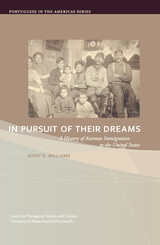
Starting with the whaling routes that first connected the mid-Atlantic archipelago with the ports of call in New England and California in the early 1800s, Williams lays out the complex relationship between the Azores and the US that has continued into the present. We learn how particular patterns of poverty, overpopulation and social inequality in the Azores pushed large numbers of the islands' inhabitants to leave their homes in search of better opportunities for themselves and their children. He tells the story of how the early whalers who jumped ship in New Bedford, San Francisco, or Hawaii were followed by kin and fellow villagers who had heard of plentiful jobs in New England's textile mills, gold and land in California, or agricultural work on Hawaiian plantations. Williams' account allows us to understand the importance of family and community connections throughout the immigrants' arduous transition from peasant life to industrial society.


Roger Douglas compares responses to terrorism by five liberal democracies—the United States, the United Kingdom, Canada, Australia, and New Zealand—over the past 15 years. He examines each nation’s development and implementation of counterterrorism law, specifically in the areas of information-gathering, the definition of terrorist offenses, due process for the accused, detention, and torture and other forms of coercive questioning.
Douglas finds that terrorist attacks elicit pressures for quick responses, often allowing national governments to accrue additional powers. But emergencies are neither a necessary nor a sufficient condition for such laws, which may persist even after fears have eased. He argues that responses are influenced by both institutional interests and prior beliefs, and complicated when the exigencies of office and beliefs point in different directions. He also argues that citizens are wary of government’s impingement on civil liberties and that courts exercise their capacity to restrain the legislative and executive branches. Douglas concludes that the worst antiterror excesses have taken place outside of the law rather than within, and that the legacy of 9/11 includes both laws that expand government powers and judicial decisions that limit those very powers.
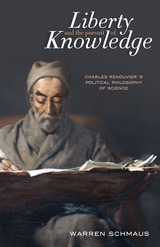
French philosopher Charles Renouvier played an influential role in reviving philosophy in France after it was proscribed during the Second Empire. Drawn to the ideals of the French Revolution, Renouvier came to recognize that the free will and civil liberties he supported were essential to the pursuit of science, contrary to the ideologies of positivists and socialists who would restrict liberty in the name of science. He struggled against monarchy and religious authority in the period up through 1848 and defended a liberal, secular form of political organization at a critical turning point in French history, the beginning of the Third Republic. As Warren Schmaus argues, Renouvier’s work provides an example of one way in which philosophy of science can succeed in bringing about change in political life—by critiquing political ideologies that falsely claim absolute certainty on religious, scientific, or any other grounds. Liberty and the Pursuit of Knowledge explores the understudied relationship between Renouvier’s philosophy of science and his political philosophy, shedding new light on the significance of his thought for the history of philosophy.

In Mothering by Degrees, Jillian Duquaine-Watson shows how single mothers pursuing college degrees must navigate a difficult course as they attempt to reconcile their identities as single moms, college students, and in many cases, employees. They also negotiate a balance between what they think a good mother should be, and what society is telling them, and how that affects their choices to go to college, and whether to stay in college or not.
The first book length study to focus on the lives and experiences of single mothers who are college students, Mothering by Degrees points out how these women are influenced by dominant American ideologies of motherhood, and the institutional parameters of the schools they attend, and argues for increased attention to the specific ways in which the choices, challenges, and opportunities available to mothers are shaped within their specific environments, as well as the ways in which mothers help shape those environments...
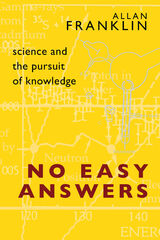
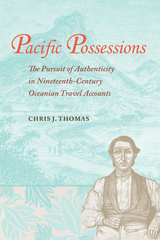
In Pacific Possessions: The Pursuit of Authenticity in Nineteenth-Century Oceanian Travel Accounts, Chris J. Thomas expands the literary canon on Polynesia and Melanesia beyond the giants, such as Herman Melville and Jack London, to include travel narratives by British and American visitors. These accounts were widely read and reviewed when they first appeared but have largely been ignored by scholars. For the first time, Thomas defines these writings as a significant literary genre.
Recovering these works allows us to reconceive of nineteenth-century Oceania as a vibrant hub of cultural interchange. Pacific Possessions recaptures the polyphony of voices that enlivened this space through the writing of these travelers, while also paying attention to their Oceanian interlocutors. Each chapter centers on a Pacific cultural marker, what Thomas refers to as each writer’s “possession”: the Tongan tattoo, the Hawaiian hula, the Fijian cannibal fork, and Robert Louis Stevenson’s cache of South Seas photographs.
Thomas analyzes how westerners formed narratives around these objects and what those objects meant within nineteenth-century Oceanian cultures. He argues that the accounts served to shape a version of Oceanian authenticity that persists today. The profiled traveler-writers had complex experiences, at times promoting exoticized exaggerations of so-called authentic Polynesian and Melanesian cultures and at other times genuinely engaging in cultural exchange. However, their views were ultimately compromised by a western lens. In Thomas’s words, “the authenticity is at once celebrated and written over.”
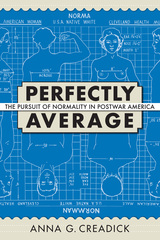
In Perfectly Average, Anna Creadick investigates how and why "normality" reemerged as a potent homogenizing category in postwar America. Working with scientific studies, material culture, literary texts, film, fashion, and the mass media, she charts the pursuit of the"normal" through thematic chapters on the body, character, class, sexuality, and community.
Creadick examines such evidence as the "Norm and Norma" models produced during the war by sexologists and anthropologists—statistical composites of"normal" American bodies. In 1945, as thousands of Ohio women signed up for a Norma Look-Alike contest, a "Harvard Study of Normal Men" sought to define the typical American male according to specific criteria, from body shape to upbringing to blood pressure. By the early 1950s, the "man in the gray flannel suit" had come to symbolize what some regarded as the stultifying sameness of the "normalized" middle class. Meanwhile, novels such as From Here to Eternity and Peyton Place both supported and challenged normative ideas about gender, race, and sexuality, even as they worked to critique the postwar culture of surveillance—watching and being watched—through which normalizing power functioned.
As efforts to define normality became increasingly personal, the tensions em-bedded in its binary logic multiplied: Was normal descriptive of an average or prescriptive of an ideal? In the end, Creadick shows, a variety of statistics, assumptions, and aspirations converged to recast "normality" not as something innate or inborn, but rather as a quality to be actively pursued—a standard at once highly seductive and impossible to achieve because it required becoming perfectly average.

Marren makes this case by delving into Plato’s Republic, a foundational work of political philosophy. While the Republic straightforwardly condemns the decadence and greed of a tyrant, Plato’s attack on political idealism is both solemn and comedic. In fact, Plato draws on the same comedic stock and tropes as do Aristophanes’s plays. Marren’s book strikes up an innovative conversation between three works by Aristophanes—Assembly Women, Knights, and Birds—and Plato’s philosophy, prompting important questions about individual convictions and one’s personal search for justice. These dialogic works offer critiques of tyranny that are by turns brilliant, scathing, and exuberant, making light of faults and ideals alike. Philosophical comedy exposes despotism in individuals as well as systems of government claiming to be just and good. This critique holds as much bite against contemporary injustices as it did at the time of Aristophanes and Plato.
An ingenious new work by an emerging scholar, Plato and Aristophanes shows that comedy—in tandem with philosophy and politics—is essential to self-examination. And without such examination, there is no hope for a just life.
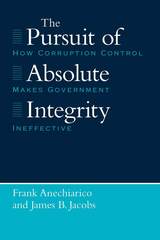
"Anechiarico and Jacobs . . . have pushed aside the claims and posturing by officials and reformers and revealed a critical need to reevaluate just what we have and are doing to public servants, and to the public, in the name of anti-corruption."—Citylaw
"A timely and very useful addition to the new debate over corruption and reform."—Michael Johnston, American Political Science Review
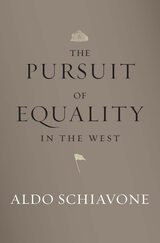
One of the world’s foremost historians of Western political and legal thought proposes a bold new model for thinking about equality at a time when its absence threatens democracies everywhere.
How much equality does democracy need to survive? Political thinkers have wrestled with that question for millennia. Aristotle argued that some are born to command and others to obey. Antiphon believed that men, at least, were born equal. Later the Romans upended the debate by asking whether citizens were equals not in ruling but in standing before the law. Aldo Schiavone guides us through these and other historical thickets, from the first democracy to the present day, seeking solutions to the enduring tension between democracy and inequality.
Turning from Antiquity to the modern world, Schiavone shows how the American and the French revolutions attempted to settle old debates, introducing a new way of thinking about equality. Both the French revolutionaries and the American colonists sought democracy and equality together, but the European tradition (British Labour, Russian and Eastern European Marxists, and Northern European social democrats) saw formal equality—equality before the law—as a means of obtaining economic equality. The American model, in contrast, adopted formal equality while setting aside the goal of economic equality.
The Pursuit of Equality in the West argues that the United States and European models were compatible with industrial-age democracy, but neither suffices in the face of today’s technological revolution. Opposing both atomization and the obsolete myths of the collective, Schiavone thinks equality anew, proposing a model founded on neither individualism nor the erasure of the individual but rather on the universality of the impersonal human, which coexists with the sea of differences that makes each of us unique.
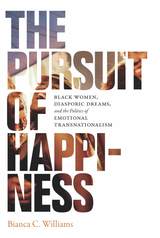
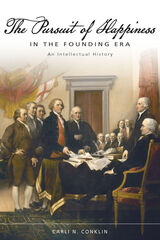
Scholars have long debated the meaning of the pursuit of happiness, yet have tended to define it narrowly, focusing on a single intellectual tradition, and on the use of the term within a single text, the Declaration of Independence. In this insightful volume, Carli Conklin considers the pursuit of happiness across a variety of intellectual traditions, and explores its usage in two key legal texts of the Founding Era, the Declaration and William Blackstone’s Commentaries on the Laws of England.
For Blackstone, the pursuit of happiness was a science of jurisprudence, by which his students could know, and then rightly apply, the first principles of the Common Law. For the founders, the pursuit of happiness was the individual right to pursue a life lived in harmony with the law of nature and a public duty to govern in accordance with that law. Both applications suggest we consider anew how the phrase, and its underlying legal philosophies, were understood in the founding era. With this work, Conklin makes important contributions to the fields of early American intellectual and legal history.
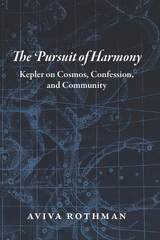
Harmony, Rothman shows, was both the intellectual bedrock for and the primary goal of Kepler’s disparate endeavors. But it was also an elusive goal amid the deteriorating conditions of his world, as the political order crumbled and religious war raged. In the face of that devastation, Kepler’s hopes for his theories changed: whereas he had originally looked for a unifying approach to truth, he began instead to emphasize harmony as the peaceful coexistence of different views, one that could be fueled by the fundamentally nonpartisan discipline of mathematics.
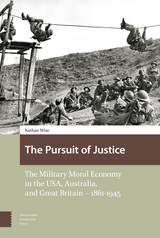
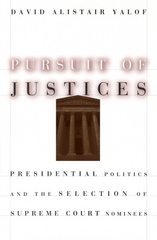
Yalof draws on the papers of seven modern presidents, from Truman to Reagan, and firsthand interviews with key figures, such as Ramsey Clark, Edwin Meese, and President Gerald Ford. He documents and analyzes the selection criteria these presidents used, the pool of candidates from which they chose, their strategies, and the political pressures affecting their decisions, both successes and failures. Yalof also disputes much conventional wisdom about the selection process, including the widely held view that presidents choose nominees primarily to influence future decisions of the high court. In a substantial epilogue, Yalof offers insightful observations about the selections of Presidents George Bush and Bill Clinton.
By focusing on a neglected area of presidential politics, Yalof offers a fascinating and unprecedented glimpse into the intricate world of executive branch decisionmaking and the Supreme Court appointment process as a whole.
Winner of the 2000 Richard E. Neustadt Award for Best Book on the American Presidency



In Pursuit of Truth W. V. Quine gives us his latest word on issues to which he has devoted many years. As he says in the preface: “In these pages I have undertaken to update, sum up, and clarify my variously intersecting views on cognitive meaning, objective reference, and the grounds of knowledge.”
The pursuit of truth is a quest that links observation, theory, and the world. Various faulty efforts to forge such links have led to much intellectual confusion. Quine’s efforts to get beyond the confusion begin by rejecting the very idea of binding together word and thing, rejecting the focus on the isolated word. For him, observation sentences and theoretical sentences are the alpha and omega of the scientific enterprise. Notions like “idea” and ”meaning” are vague, but a sentence—now there’s something you can sink your teeth into. Starting thus with sentences, Quine sketches an epistemological setting for the pursuit of truth. He proceeds to show how reification and reference contribute to the elaborate structure that can indeed relate science to its sensory evidence.
In this book Quine both summarizes and moves ahead. Rich, lively chapters dissect his major concerns: evidence, reference, meaning, intention, and truth. “Some points,” he writes, “have become clearer in my mind in the eight years since Theories and Things. Some that were already clear in my mind have become clearer on paper. And there are some that have meanwhile undergone substantive change for the better.”
This is a key book for understanding the effort that a major philosopher has made a large part of his life’s work: to naturalize epistemology in the twentieth century. The book is concise and elegantly written, as one would expect, and does not assume the reader’s previous acquaintance with Quine’s writings. Throughout, it is marked by Quine’s wit and economy of style.
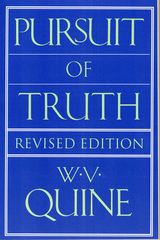
In Pursuit of Truth W. V. Quine gives us his latest word on issues to which he has devoted many years. As he says in the preface: "In these pages I have undertaken to update, sum up, and clarify my variously intersecting views on cognitive meaning, objective reference, and the grounds of knowledge?'The pursuit of truth is a quest that links observation, theory, and the world. Various faulty efforts to forge such links have led to much intellectual confusion. Quine's efforts to get beyond the confusion begin by rejecting the very idea of binding together word and thing, rejecting the focus on the isolated word. For him, observation sentences and theoretical sentences are the alpha and omega ofthe scientific enterprise. Notions like "idea" and "meaning" are vague, but a sentence-now there's something you can sink your teeth into.
Starting thus with sentences, Quine sketches an epistemological setting for the pursuit of truth. He proceeds to show how reification and reference contribute to the elaborate structure that can indeed relate science to its sensory evidence.In this book Quine both summarizes and moves ahead. Rich, lively chapters dissect his major concerns-evidence, reference, meaning, intension, and truth. "Some points;' he writes, "have become clearer in my mind in the eight years since Theories and Things. Some that were already clear in my mind have become clearer on paper. And there are some that have meanwhile undergone substantive change for the better." This is a key book for understanding the effort that a major philosopher has made a large part of his life's work: to naturalize epistemology in the twentieth century. The book is concise and elegantly written, as one would expect, and does not assume the reader's previous acquaintance with Quine's writings. Throughout, it is marked by Quine's wit and economy of style.
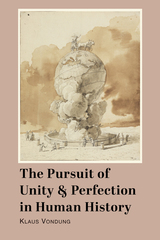
Particular focus in following the thread of unity and perfection in human intellectual and practical ambitions ultimately hones in on the combination of religion and politics. Vondung in these essays unpacks the ways in which this continues to fascinate and disturb us, and in his expertise he uses National Socialism to connect this pursuit of unity and perfection to what he calls one of the signature marks of modernity––namely, secular apocalypticism. This claim stands in opposition to Eric Voegelin’s remark that Gnosticism, rather, is “the nature of modernity.” Vondung, who studied and wrote his dissertation under Voegelin, grapples with the contrast of these positions. Vondung is willing to challenge Voegelin, but ultimately his treatment of the latter bears the quality of tribute to this great scholar.
Vondung also explores the points of contact between apocalypticism and Hermetic speculation. Despite the independence of the religious and philosophical doctrines of Hermeticism, there are parallels to be found. Apocalypticism and Hermeticism originated in antiquity and yet each represents a tradition that still holds footing today. Vondung furthermore leads the reader to see the project of salvation found in both even as each operates with a different scope.
This collection of essays centers itself on a perspective of the human pursuit of unity and perfection, directly or indirectly, as objectives of intellectual endeavors, existential ideals, as social or political outcomes, and in the case of National Socialism even as perverse aberrations that led to the Holocaust. Vondung’s particular treatment of Voegelin’s work likewise establishes what the former identifies as a stand-out question of this study: Does the search for order in history show us the unity of the history of humankind?
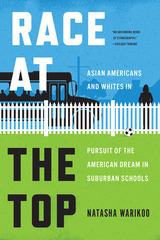
The American suburb conjures an image of picturesque privilege: manicured lawns, quiet streets, and—most important to parents—high-quality schools. These elite enclaves are also historically white, allowing many white Americans to safeguard their privileges by using public schools to help their children enter top colleges. That’s changing, however, as Asian American professionals increasingly move into wealthy suburban areas to give their kids that same leg up for their college applications and future careers.
As Natasha Warikoo shows in Race at the Top, white and Asian parents alike will do anything to help their children get to the top of the achievement pile. She takes us into the affluent suburban East Coast school she calls “Woodcrest High,” with a student body about one-half white and one-third Asian American. As increasing numbers of Woodcrest’s Asian American students earn star-pupil status, many whites feel displaced from the top of the academic hierarchy, and their frustrations grow. To maintain their children’s edge, some white parents complain to the school that schoolwork has become too rigorous. They also emphasize excellence in extracurriculars like sports and theater, which maintains their children’s advantage.
Warikoo reveals how, even when they are bested, white families in Woodcrest work to change the rules in their favor so they can remain the winners of the meritocracy game. Along the way, Warikoo explores urgent issues of racial and economic inequality that play out in affluent suburban American high schools. Caught in a race for power and privilege at the very top of society, what families in towns like Woodcrest fail to see is that everyone in their race is getting a medal—the children who actually lose are those living beyond their town’s boundaries.
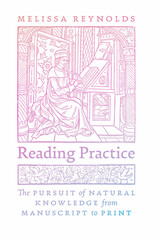
Reading Practice tells the story of how ordinary people grew comfortable learning from commonplace manuscripts and printed books, such as almanacs, medical recipe collections, and herbals. From the turn of the fifteenth century to the close of the sixteenth century, these were the books English people read when they wanted to attend to their health or understand their place in the universe. Before then, these works had largely been the purview of those who could read Latin. Around 1400, however, medical and scientific texts became available in Middle English while manuscripts became less expensive. These vernacular manuscripts invited their readers into a very old and learned conversation: Hippocrates and Galen weren’t distant authorities whose word was law, they were trusted guides, whose advice could be excerpted, rearranged, recombined, and even altered to suit a manuscript compiler’s needs. This conversation continued even after the printing press arrived in England in 1476. Printers mined manuscripts for medical and scientific texts that they would publish throughout the sixteenth century, though the pressures of a commercial printing market encouraged printers to package these old texts in new ways. Without the weight of authority conditioning their reactions and responses to very old knowledge, and with so many editions of practical books to choose from, English readers grew into confident critics and purveyors of natural knowledge in their own right.
Melissa Reynolds reconstructs shifting attitudes toward medicine and science over two centuries of seismic change within English culture, attending especially to the effects of the Reformation on attitudes toward nature and the human body. Her study shows how readers learned to be discerning and selective consumers of knowledge gradually, through everyday interactions with utilitarian books.
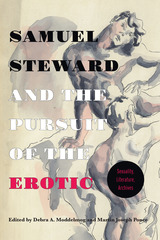
With work by prominent scholars in queer, transgender, and sexuality studies, and with topics such as the queer archive, hoarding, masochism, the queer mystery, race and desire, sexology, and gay pornography, Samuel Steward and the Pursuit of the Erotic will appeal to a wide range of readers across a variety of disciplines invested in queer experience. Closing on a personal recollection from one of Steward’s last close friends, the volume will also appeal to readers interested in the personal aspects of this fascinating, idiosyncratic figure’s multifaceted life.

Seattle Sports: Play, Identity, and Pursuit in the Emerald City, edited by Terry Anne Scott, explores the vast and varied history of sports in this city where diversity and social progress are reflected in and reinforced by play. The work gathered here covers Seattle’s professional sports culture as well as many of the city’s lesser-known figures and sports milestones. Fresh, nuanced takes on the Seattle Mariners, Supersonics, and Seahawks are joined by essays on gay softball leagues, city court basketball, athletics in local Japanese American communities during the interwar years, ultimate, the fierce women of roller derby, and much more. Together, these essays create a vivid portrait of Seattle fans, who, in supporting their teams—often in rain, sometimes in the midst of seismic activity—check the country’s implicit racial bias by rallying behind outspoken local sporting heroes.


This first critical appreciation of T Bone Burnett reveals how the proponent of Americana music and producer of artists ranging from Robert Plant and Alison Krauss to B. B. King and Elvis Costello has profoundly influenced American music and culture.
T Bone Burnett is a unique, astonishingly prolific music producer, singer-songwriter, guitarist, and soundtrack visionary. Renowned as a studio maven with a Midas touch, Burnett is known for lifting artists to their greatest heights, as he did with Raising Sand, the multiple Grammy Award–winning album by Robert Plant and Alison Krauss, as well as acclaimed albums by Los Lobos, the Wallflowers, B. B. King, and Elvis Costello. Burnett virtually invented “Americana” with his hugely successful roots-based soundtrack for the Coen Brothers film, O Brother, Where Art Thou? Outspoken in his contempt for the entertainment industry, Burnett has nevertheless received many of its highest honors, including Grammy Awards and an Academy Award.
T Bone Burnett offers the first critical appreciation of Burnett’s wide-ranging contributions to American music, his passionate advocacy for analog sound, and the striking contradictions that define his maverick artistry. Lloyd Sachs highlights all the important aspects of Burnett’s musical pursuits, from his early days as a member of Bob Dylan’s Rolling Thunder Revue and his collaboration with the playwright Sam Shepard to the music he recently composed for the TV shows Nashville and True Detective and his production of the all-star album Lost on the River: The New Basement Tapes. Sachs also underscores Burnett’s brilliance as a singer-songwriter in his own right. Going well beyond the labels “legendary” or “visionary” that usually accompany his name, T Bone Burnett reveals how this consummate music maker has exerted a powerful influence on American music and culture across four decades.

This book assesses the historical significance of the International Military Tribunal for the Far East (IMTFE)—commonly called the Tokyo trial—established as the eastern counterpart of the Nuremberg trial in the immediate aftermath of World War II.
Through extensive research in Japanese, American, Australian, and Indian archives, Yuma Totani taps into a large body of previously underexamined sources to explore some of the central misunderstandings and historiographical distortions that have persisted to the present day. Foregrounding these voluminous records, Totani disputes the notion that the trial was an exercise in “victors’ justice” in which the legal process was egregiously compromised for political and ideological reasons; rather, the author details the achievements of the Allied prosecution teams in documenting war crimes and establishing the responsibility of the accused parties to show how the IMTFE represented a sound application of the legal principles established at Nuremberg.
This study deepens our knowledge of the historical intricacies surrounding the Tokyo trial and advances our understanding of the Japanese conduct of war and occupation during World War II, the range of postwar debates on war guilt, and the relevance of the IMTFE to the continuing development of international humanitarian law.
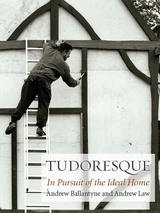
With its distinctive gables and arches, Tudor-style architecture is recognized around the world as a symbol of British culture; it represents the idea of home to British citizens in the United Kingdom and abroad. Some love it, others hate it, but the Tudoresque is still being built—to give a house an old-fashioned air or to create a sense of exotica. Yet few people know anything about how Tudor Revival buildings came to be. To fill this gap is Tudoresque, an insightful book that explores the origin of the style, tracing its roots to the antiquarian enthusiasms of the eighteenth century.
It looks at the Tudoresque cottage style, which later influenced 1930s architecture, and the Tudor-style manor house, particularly favored in the nineteenth century. While the style has been discouraged since the 1920s (and is especially reviled by modernists) it continues to be a popular choice—particularly when the architect doesn’t have the upper hand. The authors here show how the style is the mainstream of twentieth-century British architecture and explore how it has travelled abroad. From Tudor Village in Queens to Stan Hywet Hall in Akron to Malaysia, Shanghai, and Singapore, Tudor Revival has found a comfortable home across the globe. These black and white gabled buildings are important not so much because they are great architecture, but because they are everywhere.
Illustrated with images from more than 200 years of the Tudor Revival, and including examples from Britain, America, India and East Asia, this knowledgable and entertaining book will be an indispensable guide to the one of the world’s most iconic architectural styles.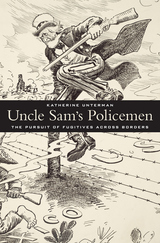
Extraordinary rendition—the practice of abducting criminal suspects in locations around the world—has been criticized as an unprecedented expansion of U.S. police powers. But America’s aggressive pursuit of fugitives beyond its borders far predates the global war on terror. Uncle Sam’s Policemen investigates the history of international manhunts, arguing that the extension of U.S. law enforcement into foreign jurisdictions at the turn of the twentieth century forms an important chapter in the story of American empire.
In the late 1800s, expanding networks of railroads and steamships made it increasingly easy for criminals to evade justice. Recognizing that domestic law and order depended on projecting legal authority abroad, President Theodore Roosevelt declared in 1903 that the United States would “leave no place on earth” for criminals to hide. Charting the rapid growth of extradition law, Katherine Unterman shows that the United States had fifty-eight treaties with thirty-six nations by 1900—more than any other country. American diplomats put pressure on countries that served as extradition havens, particularly in Latin America, and cloak-and-dagger tactics such as the kidnapping of fugitives by Pinkerton detectives were fair game—a practice explicitly condoned by the U.S. Supreme Court.
The most wanted fugitives of this period were not anarchists and political agitators but embezzlers and defrauders—criminals who threatened the emerging corporate capitalist order. By the early twentieth century, the long arm of American law stretched around the globe, creating an informal empire that complemented both military and economic might.

Samantha Kwan and Jennifer Graves reveal how women negotiate their “unnatural”—but hopefully (in their view) natural-looking—surgically-altered bodies. Based on in-depth interviews with forty-six women who underwent cosmetic surgery to enhance their appearance, the authors investigate motivations for surgery as well as women’s thoughts about looking natural after the procedures. Under the Knife dissects the psychological and physical strategies these women use to manage the expectations, challenges, and disappointments of cosmetic surgery while also addressing issues of agency and empowerment. It shows how different cultural intersections can produce varied goals and values around body improvement.
Under the Knife highlights the role of deep-seated yet contradictory gendered meanings about women’s bodies, passing, and boundary work. The authors also consider traditional notions of femininity and normalcy that trouble women’s struggle to preserve an authentic moral self.
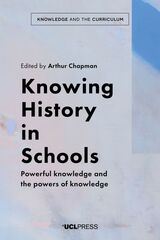
The design of school curricula involves deep thought about the nature of knowledge and its value to learners and society. Such a serious responsibility raises a number of questions: What is knowledge for? What knowledge is important for children to learn? How do we decide what knowledge matters in each school subject? The blurring of distinctions between pedagogy and curriculum, as well as that between experience and knowledge, has resulted in a confusing message for teachers about the part that each plays in the education of children. This book aims to dispel confusion through a robust rationale for what schools should teach, offering key understanding to teachers of the relationship between knowledge and their own pedagogy. This second edition includes new chapters on chemistry, drama, music, and religious education, as well as an updated chapter on biology. A revised introduction reflects on the emerging discourse around decolonizing the curriculum and on the relationship between the knowledge that children encounter at school and in their homes.
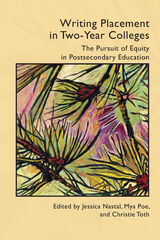
READERS
Browse our collection.
PUBLISHERS
See BiblioVault's publisher services.
STUDENT SERVICES
Files for college accessibility offices.
UChicago Accessibility Resources
home | accessibility | search | about | contact us
BiblioVault ® 2001 - 2024
The University of Chicago Press






